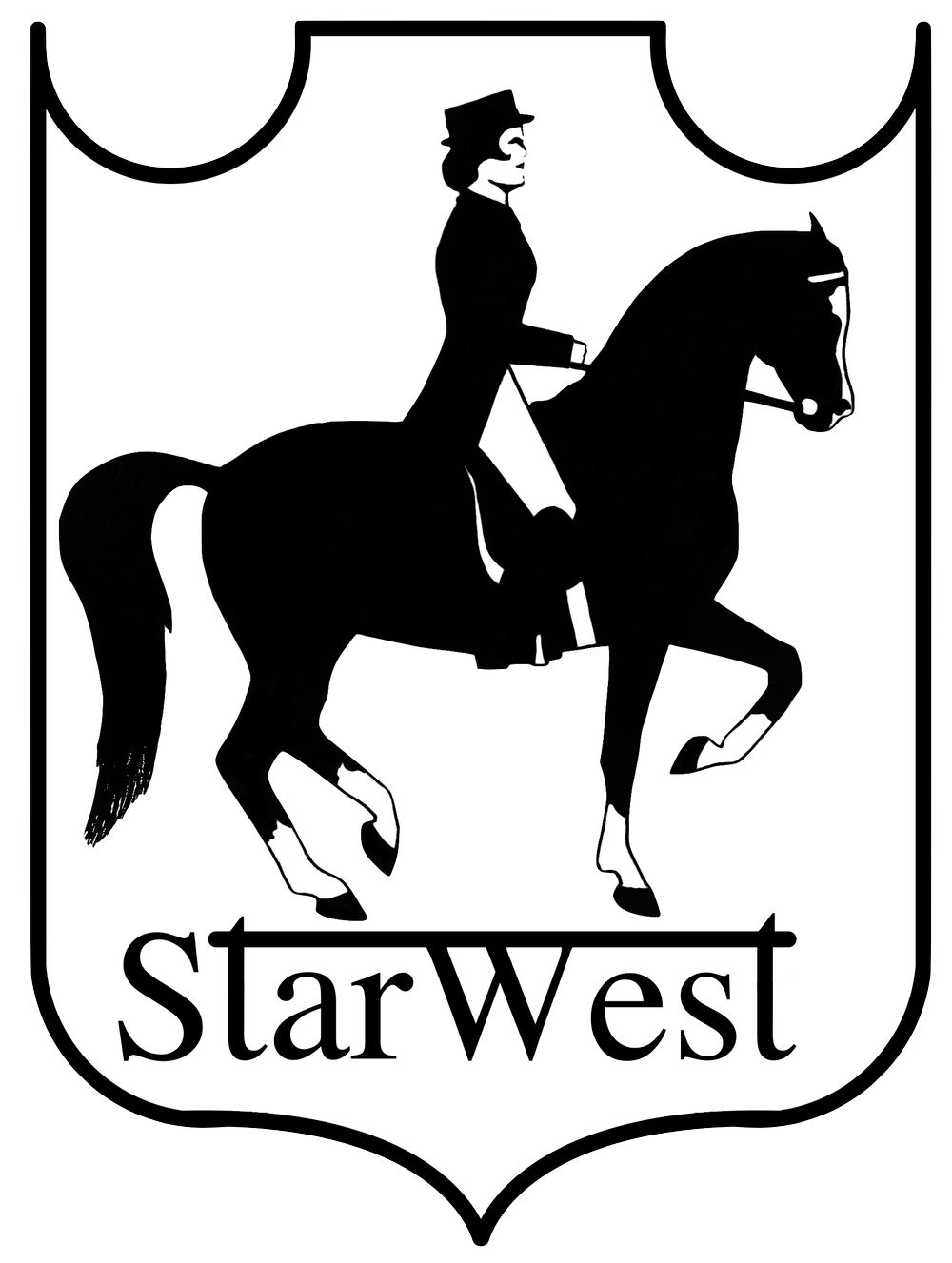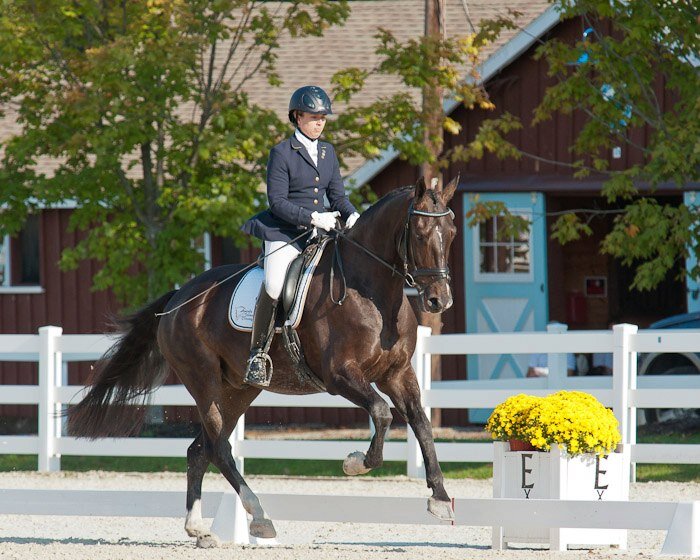Amanda Johnson Borchardt
In late 2018 StarWest and the dressage community at large lost a dear friend in Mandy Johnson. At the 2019 US Dressage Finals in Lexington, KY we had the privilege to honor her during a brief memorial. Below is the text of that memorial as read by her former mentor and friend George Williams.
Many, many thanks to the following: Barb Putnam, Mandy's mother; Stephan Hienzsch, Lisa Goretta, and Kathie Robertson at USDF; George Williams; and John Borys.
George Williams, John Borys, Martin Kuhn, Heather McCarthy, Stephanie Pace, and Nichole Malin-Smith joined in the Alltech Arena for the tribute.
Mandy remains an inspiration to Kate and Martin to this day.
Some Photos of Mandy
Born in 1981, Amanda Johnson grew up on her family farm in Iowa. Following her sport-horse breeding mother Barb Putnam's example, Mandy was horse-crazy from the start. With her Midwestern, "Can Do" attitude, she and her Mom would haul from Iowa to Illinois to participate in the earliest Young Rider clinics offered.
She competed in three North American Young Rider Championships. Aboard her Westfalen gelding Glissade — whom she had trained since he was five — she went from struggling to get on her first Region 4 team to placing third at Gladstone in the Young Rider individual Test in 2001. By the time she aged out of Young Riders, Mandy was the highest ranked Young Rider in the country.
At 19 while working on her Industrial Engineering degree she met James Borchardt. They would marry 6 years later enjoying 13 years of marriage.
By the age of 21 Mandy had competed Glissade, now only 10 years old, to Grand Prix. She became the second youngest rider to earn her USDF Gold Medal.
Long before there was a US Dressage Finals, the Regional Championships were it. After many wins in the YR division, Mandy won the Grand Prix Freestyle at her first Regionals as a professional. One year later she would go on to win four Championships or Reserves at Regionals.
In 2009 Mandy participated in the Brentina Cup, a program inspired directly by riders like Mandy. There she rode Pip, the second horse she trained to Grand Prix from the start.
In 2013 she qualified two horses for the inaugural US Dressage Finals. A year later she was back with four.
While undergoing cancer treatment in 2016, Mandy competed in the World Cup test event in Omaha. She was invited back a year later to perform in the Showcase event at the 2017 World Cup Finals aboard her mother's homebred, Foley. He was the last of the horses she trained and competed from the start to Grand Prix.
Mandy refused to allow cancer to define her. She didn’t just keep up with training horses and riders, she competed in triathlons.
In declining health, she still managed to successfully campaign three horses for Regional Championships. Winning her last three classes at three separate shows with scores over 70%, a few months later, Mandy went out with her boots on.
She was the Norman Rockwell ideal of American dressage. Quintessentially American, she knew that having big dreams meant having an even bigger work ethic. She knew that the more time something took to get, the longer it would stick. Making mistakes meant learning from them.
Whether in riding or fighting her illness, Mandy kept that perspective throughout her life, never shirking from making the long, slow, perhaps painful progress she knew needed to be made. She persevered with her signature smile and her unstifleable laughter.
Mandy's professional success was the success of the American system. She proved ethic and talent rather than money stands out and will be recognized, fostered, and rewarded. She never let her immense success go to her head. Amanda was, in short, the best of us.
Mandy was the epitome of successful grass-roots dressage. She came through the ranks of Young Riders to become a highly respected and successful trainer and competitor as well as a mentor and example.
She was a champion of classical dressage, a purveyor of tried, true, and humane training technique. She exemplified this when she would often take conformationally challenged horses and through systematic training, transform them into something light, airy, and easy to ride. She showed this too when she took on retraining horses mentally and physically fried from too much pressure and stress transforming them into confident, expressive, and happy horses.
What Mandy did with horses, she did with students. She instilled confidence in her students, giving them the tools to succeed knowing that if she could do it, so could they.
She was an inspiration just by being herself.
She was our friend, a friend to the horse, and a friend to dressage, a paragon of everything a good American dressage rider should be.
Video of memorial captured by John Borys, on November 8, 2019.
Following the memorial by George Williams this slideshow tribute played to the gathered in the Alltech Arena.
Slideshow made by John Borys.




















